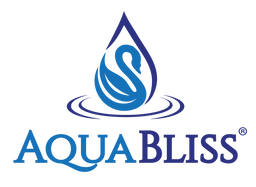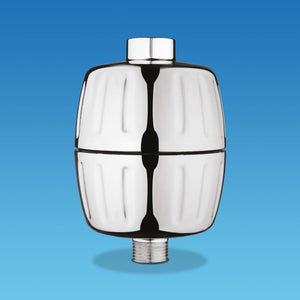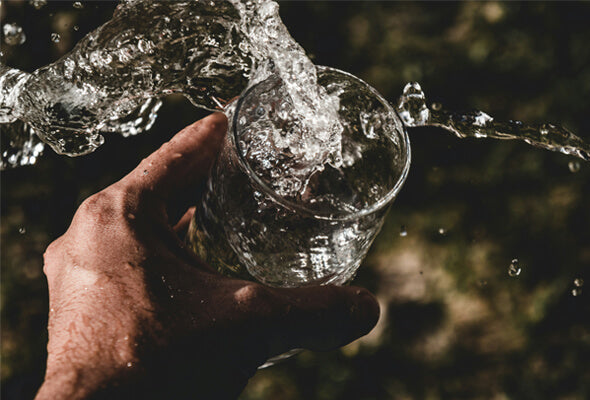Many people are curious about drinking distilled water due to its high purity and the absence of impurities commonly found in tap water.
This ultra-pure water purification method, which uses the distillation process to remove contaminants and total dissolved solids, has made distilled water a popular choice in labs, cosmetic manufacturing, and even for at-home use. But can it be a safe, long-term drinking option?
In this article, we’ll explore whether distilled water is truly safe to drink, what it’s typically used for, and if it’s healthy to make it your primary drinking source.
What is Distilled Water and How is it Made?

Distilled water is created through a process that involves boiling water to separate pure water from contaminants. During the distillation process, tap water or source water is heated to its boiling point, converting it into steam.
This steam rises, leaving behind impurities, heavy metals, minerals, and other inorganic compounds. The steam is then condensed back into a liquid form, resulting in purified water.
This meticulous water purification method removes other contaminants such as microorganisms, bacteria, and harmful chemicals, which can be beneficial for various uses.
Distilled water is considered a form of demineralized water because it lacks essential minerals like calcium and magnesium, often found in regular drinking water.
Common Uses for Distilled Water
Due to its purity, distilled water is valuable in settings where any level of contamination could cause issues.
Some common uses include:
-
Laboratories and Scientific Research: Many scientific experiments require pure, contaminant-free water to ensure accurate results.
-
Medical Applications: Distilled water is used to sterilize equipment, clean wounds, and as a solvent in some medications.
-
Household Appliances: Using distilled water in devices like humidifiers, steam irons, and car batteries prevents mineral buildup that can shorten their lifespan.
-
Cosmetics and Personal Care: Many beauty products, including creams, shampoos, and toners, use distilled water as a base to ensure they’re free from other impurities.
Given its versatility, distilled water has a place in both industrial and personal settings. But what about drinking distilled water? Is it safe, and are there any benefits?
Is It Safe to Drink Distilled Water?
The answer is generally yes—distilled water is safe to drink in small to moderate amounts. Due to the distillation process, it’s free from waterborne pathogens, harmful chemicals, and heavy metals, making it safer than some untreated tap water.
However, it’s important to note that distilled water lacks essential minerals like sodium, potassium, and magnesium.
These minerals are beneficial to health and often found in mineral water or spring water. So while distilled water may be pure, it doesn’t contribute to your electrolyte balance, which could lead to electrolyte imbalance if consumed over the long term without a well-balanced diet.
Benefits of Drinking Distilled Water
Drinking distilled water offers a range of benefits, particularly for those who prioritize purity in their hydration choices.
Below are the advantages that distilled water can provide:
- Purity: Distilled water is the purest form of water. This makes it an excellent choice for people with compromised immune systems or those living in areas where tap water may not meet drinking water quality standards.
- Reduced Exposure to Toxins: Distilled water can help reduce exposure to potential contaminants like chlorine, lead, and other impurities that might be present in tap water. For individuals concerned about water quality, drinking distilled water can be reassuring.
- Beneficial for Detox Programs: Some wellness advocates recommend drinking distilled water during short-term detox programs, as it doesn’t introduce new chemicals or impurities into the body.
However, while these benefits make distilled water sound appealing, there are also some health risks to consider.
Potential Health Risks of Drinking Distilled Water
Drinking distilled water doesn’t typically pose any immediate health concerns, but it may have drawbacks when consumed as your primary source of water.
Some risks include:
- Lack of Essential Minerals: Distilled water is devoid of minerals such as calcium, magnesium, and sodium, which are vital for various bodily functions, including bone health and muscle function. If distilled water is your main source of hydration, you may be at risk of developing mineral deficiencies over time.
- Electrolyte Imbalance: Electrolytes like sodium and potassium help maintain fluid balance in the body. Drinking only distilled water can potentially lead to an electrolyte imbalance if not supplemented with a balanced diet that provides these nutrients.
- Impact on Taste: Many people find distilled water to have a bland taste compared to regular drinking water or mineral water. The lack of minerals present in distilled water results in a flavor that some describe as "flat" or less refreshing.
In short, while drinking distilled water is safe, it may not be ideal as a sole source of hydration due to its lack of essential minerals.
Distilled Water vs. Purified Water vs. Tap Water
Distilled water is often compared to other forms of purified water.
Here’s how it stacks up:
1. Purified Water
This is water that has undergone any treatment process to remove contaminants. Methods like reverse osmosis, UV filtration, or carbon filtering are common. Unlike distilled water, purified water may still contain some minerals, depending on the treatment process.
2. Tap Water
Tap water is commonly sourced from municipal supplies and is regulated by the Environmental Protection Agency (EPA). It often contains added minerals and chemicals to improve taste and safety, such as chlorine to prevent microbial contamination. While tap water can vary in quality, most tap water in developed countries is safe for consumption.
For people who want pure water but don’t want to lose beneficial minerals, filtered water is often a better choice than distilled water.
The Role of Distilled Water in Your Diet
Although distilled water is generally safe, it should ideally be part of a diet rich in minerals. Pairing distilled water with a balanced diet ensures you receive essential nutrients that are missing in demineralized water.
Distilled Water and Electrolyte Balance
Electrolytes such as sodium and potassium are critical for heart function, nerve signaling, and muscle contractions. Drinking only distilled water can deplete these nutrients without replacement, especially during hot weather when you lose electrolytes through sweat.
To stay hydrated and maintain proper electrolyte balance, consider consuming distilled water alongside mineral-rich foods or an occasional electrolyte supplement.
Alternatives to Distilled Water for Drinking
If you’re concerned about the purity of tap water, there are alternatives that provide both safety and essential minerals:
-
Spring Water: This naturally filtered water is often rich in minerals. Spring water can vary in taste and mineral content depending on its source.
-
Reverse Osmosis Water: Reverse osmosis is a purification method that removes contaminants but leaves some minerals. It’s a good alternative for people looking for pure water with a fresh taste.
-
Mineral Water: For those who enjoy the flavor and health benefits of added minerals, mineral water can be a tasty and nutritious option.
Is Distilled Water Safe for Long-Term Drinking?

While distilled water is safe for short-term use or intermittent consumption, long-term use could pose some health risks if it’s your only source of hydration.
This is especially important to consider for infants or individuals with unique health needs, as their bodies rely on an adequate supply of minerals for growth and development.
In general, regular drinking water from a trusted source provides a balance of purity and minerals that distilled water lacks.
Final Thoughts: Should You Drink Distilled Water?
Distilled water can be a great option in certain situations, such as when tap water is unavailable or potentially contaminated. Its purity makes it appealing for detox programs and specific applications in the lab, kitchen, and medical settings.
For everyday hydration, though, purified water or mineral water may be a better choice. These alternatives provide essential minerals that benefit your health and taste more appealing than distilled water, which can feel flat and unsatisfying. While distilled water may serve specific needs, you might also want to consider the water quality in other areas of your daily routine.
For example, using a high-quality shower filters like AquaBliss can help reduce exposure to contaminants and improve your showering experience without stripping your water of beneficial minerals.
Ultimately, whether or not distilled water is right for you depends on your health, dietary habits, and personal preferences. If you choose distilled water as your primary drinking source, ensure that your diet compensates for the lack of minerals to maintain overall wellness.







